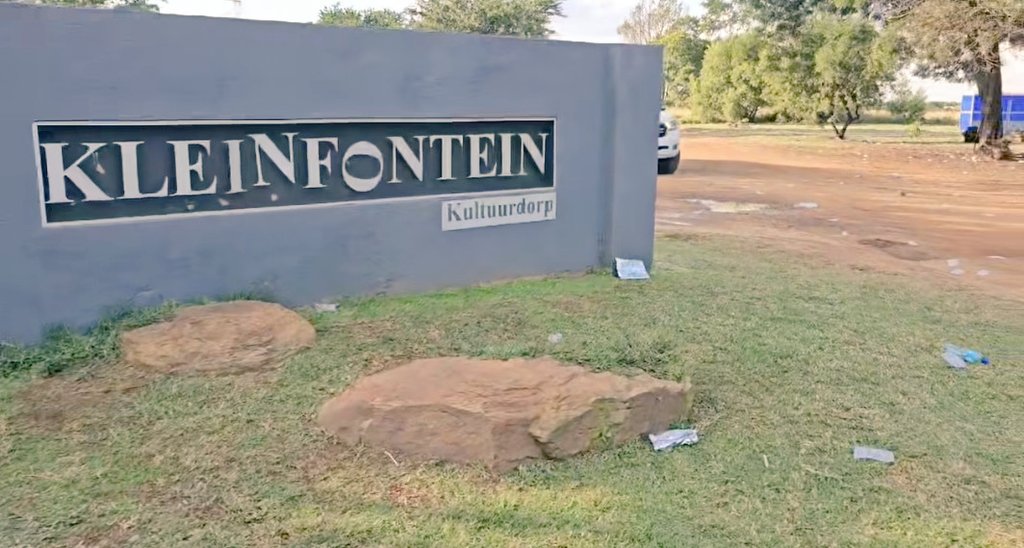News
A Possible Turning Point for Kleinfontein? Tshwane Moves Toward Eco-Estate Solution

Relief for Kleinfontein?
Talks hint at a new chapter for the controversial Afrikaner settlement
After years of tension, legal wrangling, and political controversy, the small Afrikaner settlement of Kleinfontein, east of Pretoria, might finally be edging toward a breakthrough.
The City of Tshwane and the Kleinfontein Residents Association met last week in what both sides described as a constructive step forward, one that could see the enclave reclassified as an eco-estate with a minimal environmental footprint.
If successful, it could mark the beginning of a long-awaited process of formalisation for a settlement that, for decades, has existed in a legal and moral grey zone.
A Settlement with a Complicated Past
Founded in 1992, Kleinfontein was established as a private, culturally segregated Afrikaner settlement intended to preserve a specific language, heritage, and way of life. Today, it comprises around 650 homes, an old-age home, a school, a shopping centre, and even a small industrial zone, making it one of the largest of roughly 17 “illegal” developments within Tshwane’s municipal boundaries.
While residents have long maintained that the community operates peacefully and sustainably, the settlement has often drawn national attention for its exclusivity and unresolved legal status.
The city, meanwhile, has battled for years to bring Kleinfontein under municipal compliance, especially around zoning, rates, and environmental regulations.
A Proposal for an Eco-Estate
In a rare show of cooperation, both sidesrepresented by Deputy Mayor and MMC for Finance Eugene Modise, Residents Association Chair Henk Cilliers, and Republican Conference Councillor Lex Middelbergconfirmed that they will jointly develop a proposal to classify Kleinfontein as an eco-estate.
This move could soften years of animosity between the community and the city.
“The city is heartened by the residents’ willingness to pay municipal rates directly to Tshwane,” Modise said, adding that the government would now investigate ways to set up individual billing accounts for residentsan unprecedented step for a development previously listed as “non-permitted use.”
In simple terms, that could mean Kleinfontein residentsmany of whom already pay for their own infrastructurewould no longer face punitive rates and could begin transitioning into recognised residential taxpayers.
A Shift in Tone
The tone from Tshwane’s leadership marks a noticeable departure from the often adversarial approach of the past.
“We appreciate the association’s responsible attitude and their readiness to cooperate,” said Modise. “Their commitment to paying rates and taxes shows accountability, and that’s something the city respects.”
This cooperative energy, he added, could serve as a “blueprint” for other informal or illegal developments still awaiting formalisation across Tshwane.
Indeed, Kleinfontein’s caseonce symbolic of divisionmight now serve as an example of how negotiation, rather than confrontation, can move progress forward.
Legal Hurdles Still Ahead
Despite the optimism, not everyone is convinced. Kleinfontein’s official management body, represented by spokesperson Dannie de Beer, quickly distanced itself from the residents’ association’s talks with the city.
De Beer stressed that the matter remains sub judice, with ongoing legal proceedings involving the High Court order that prohibits further development until formalisation is complete.
“The group that met with the city was not elected and does not have the authority to represent Kleinfontein,” de Beer said. “The case is in the hands of our legal teams.”
This statement underscores a persistent fracture between different leadership structures within the community, complicating efforts toward unified negotiation.
Environmental and Social Implications
Tshwane’s eco-estate proposal aims to address long-standing environmental concerns, particularly around groundwater use. Nearby farmers have complained about water extraction in the area, and the plan seeks to mitigate that impact through sustainable development standards.
If Kleinfontein successfully transitions to an eco-estate, it could transform public perceptionfrom an “isolated enclave” into a model of sustainable living rooted in self-sufficiency and conservation.
Public Reaction: A Divided Conversation
Reaction online has been mixed. Some Gauteng residents see the move as “a pragmatic step toward inclusion”, while others remain critical, questioning whether formal recognition of a culturally exclusive community aligns with South Africa’s constitutional ideals.
Still, there’s a sense among observers that progresseven imperfect progressis better than stagnation.
As one X (formerly Twitter) user put it:
“If they pay rates, follow the law, and go green, then it’s one less headache for Tshwane.”
A Moment of Opportunity
For now, Kleinfontein stands at a crossroads, between history and progress, isolation and integration.
Whether the eco-estate idea leads to lasting resolution or sparks new debate, one thing is clear: for the first time in years, both sides are talking and that, in South Africa’s complex municipal landscape, is a story of its own kind of progress.
{Source: The Citizen}
Follow Joburg ETC on Facebook, Twitter , TikTok and Instagram
For more News in Johannesburg, visit joburgetc.com



























